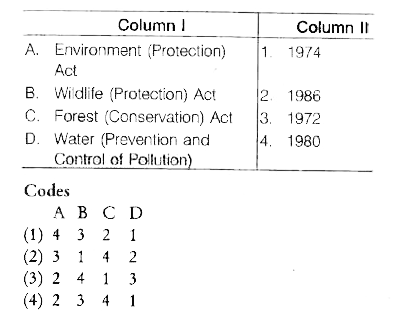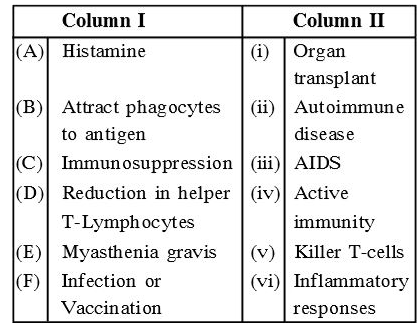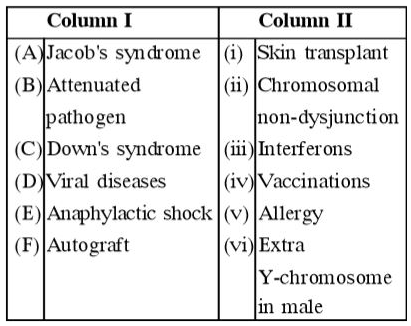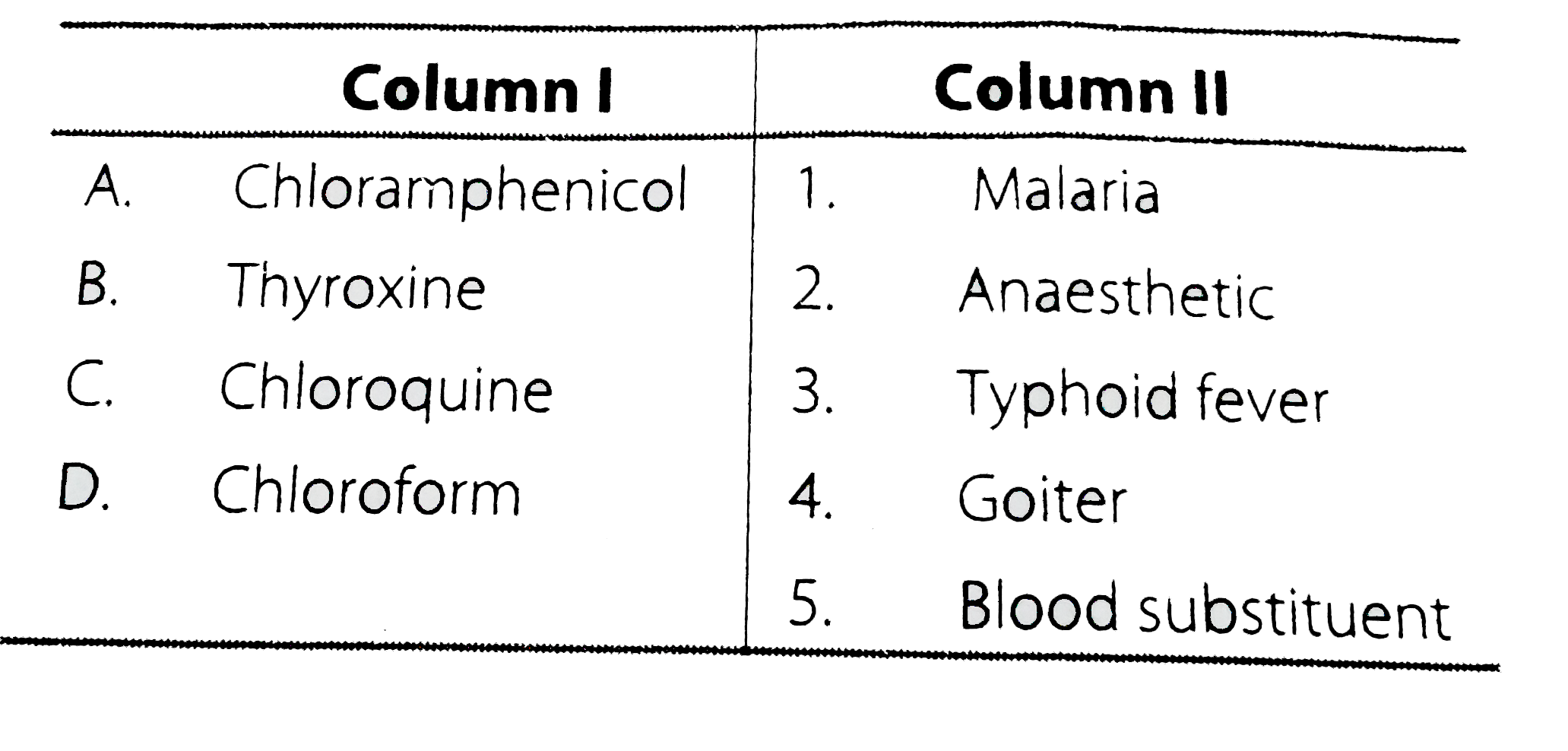Match the pollution(s) in column I with the effect(s) in column II.

Video Solution
Text Solution
The correct Answer is:A. →(4) , B. →(5) , C. →(1) , D. →(3) , (E) →(2)
A. Low concentration of sulphur dioxide causes respiratory disease e.g., asthma, bronchitis etc.
B. The irritant red haze in the traffic and congested place is due to oxides of nitrogen.
C. The increased amount of CO2 in air is mainly responsible for globel warming.
D. Excess nitrate in drinking water cause methemoglobinemia (blue baby syndrome).
E. Lead can damage kidney,liver reprodutive system etc.
|
Topper's Solved these Questions
- ENVIRONMENTAL CHEMISTRYBook:NCERT EXEMPLARChapter:ENVIRONMENTAL CHEMISTRYExercise:Assertion And Reason
Explore 7 Videos
- ENVIRONMENTAL CHEMISTRYBook:NCERT EXEMPLARChapter:ENVIRONMENTAL CHEMISTRYExercise:Long Answer Type
Explore 5 Videos
- ENVIRONMENTAL CHEMISTRYBook:NCERT EXEMPLARChapter:ENVIRONMENTAL CHEMISTRYExercise:Short Answer Type
Explore 18 Videos
- CLASSIFICATION OF ELEMENTS AND PERIODICITY IN PROPERTIES.Book:NCERT EXEMPLARChapter:CLASSIFICATION OF ELEMENTS AND PERIODICITY IN PROPERTIES.Exercise:Long answer types question
Explore 7 Videos
- HYDROCARBONSBook:NCERT EXEMPLARChapter:HYDROCARBONSExercise:Long Answer Type Questions
Explore 4 Videos
Similar Questions
Knowledge Check
Match the column i with column II.
 AA-q,B-r, C-s,D-pBA-p, B-q, C-r, D-sCA-r, B-q, C-p, D-sDA-r, B-p, C-q, D-s
AA-q,B-r, C-s,D-pBA-p, B-q, C-r, D-sCA-r, B-q, C-p, D-sDA-r, B-p, C-q, D-sMatch the column I with column II.
 AÂ A - q, B - r, C - s, D - pBA - p, B - q, C- r, D - sCÂ A r, B - s, C - p, D- qDA -s, B - p, C-q, D - r
AÂ A - q, B - r, C - s, D - pBA - p, B - q, C- r, D - sCÂ A r, B - s, C - p, D- qDA -s, B - p, C-q, D - rMatch the column I with column II.
 AA(i) B(iii) C(ii) D(iv) E(v) F(vi)BA(iii) B(ii) C(iv) D(i) E(vi) F(v)CA(vi) B(iv) C(ii) D(iii) E(v) F(i)DA(vi) B(iv) C(iii) D(ii) E(v) F(i)
AA(i) B(iii) C(ii) D(iv) E(v) F(vi)BA(iii) B(ii) C(iv) D(i) E(vi) F(v)CA(vi) B(iv) C(ii) D(iii) E(v) F(i)DA(vi) B(iv) C(iii) D(ii) E(v) F(i)
Match the pollutants given in Column I with their effects given in Column II.

View SolutionMatch the compounds given in column I with the effects given in Column II

View SolutionMatch the compounds given in Column I with the effects given in Column II.

View SolutionMatch the compounds given in Column I with the effects given in Column II.

View SolutionMatch the column I and column II.

View Solution


 .
.